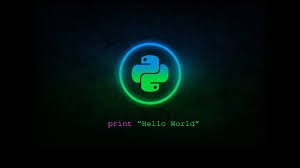Everyone talks about Apache Hadoop but no one talks about the scope of employment in the field. As you must have already learned, Hadoop as an application software aids a variety of processes across business sectors in the world. Its development tools are primarily used to store and process Big Data.
In that regard, there are several different types of job roles you can take up. As an Apache Hadoop expert, you can either join a software company that develops the tools or an application company that takes advantage of those tools.
The following are some of the most common types of jobs you can do once you learn Hadoop and master it.
Job Opportunities for Apache Hadoop Experts
A quick look at some of the career paths available in the field.
Apache Hadoop Developer
This is the most common job you can get once you finish your Hadoop training and gain some experience. Your role will basically entail the building of data storage and processing infrastructures. Since different companies follow different processes and have different products and services to sell, building a unique one for each of them is important.
For example, a Hadoop developer working at a bank will need to focus on extra security. Hadoop Spark and Hive are some of the technologies you will need to be skilled at.
Data Analyst
If you are going to deal with Big Data, you might as well be an analyst. Don’t see this role as an entry-level job. Data analysts with Hadoop training are in high demand these days as they can oversee the architecture and its output.
You have to be proficient in SQL. Huge to be able to work on SQL engines like Hive. If you are still studying, make sure you carve out a specialization as part of your Hadoop training.
Tester
Most software application jobs have this role of a tester who detects bugs in systems and helps developers with solutions. Testers are important in a Hadoop environment too as they can help detect issues in a newly built infrastructure. Some companies even have an entire team of expert testers who provide continuous suggestions and testing results to better an ongoing infrastructure build.
The good part about being a Hadoop System Tester is that you can switch to this role from any field. Are you a software tester at TCS? Learn Hadoop, get trained, and become a Hadoop tester.
Data Modeller
In this job, you will be a supporting member of the Hadoop development team in a company. A modeler’s responsibilities include system architecture and network designing so that a company’s processes align with the newly created infrastructure for Big Data.
Years of experience in this field can open gates for employment in large corporations. Here you can participate in decision-making rounds.
Senior IT Professionals
The Hadoop environment doesn’t just need people with technical Hadoop skills. It also needs innovators and world analyzers who can provide wise suggestions in the entire process involving a Hadoop setup. It could be in the development phase, processing phase, or output phase.
These professionals have decades of experience in research and development as well as a fair understanding of Apache Hadoop. If you are a senior IT professional who realizes the significance and relevance of the field in the modern world, you can learn Hadoop and slightly shift your career path.
Apart from these five job opportunities, there are several roles that you can take up if you have some qualifications in the field. So, start your Hadoop training and get a job today!



 A practical approach and expert advice can work wonders for any task as it lays down a strategic path to be followed.
A practical approach and expert advice can work wonders for any task as it lays down a strategic path to be followed.

